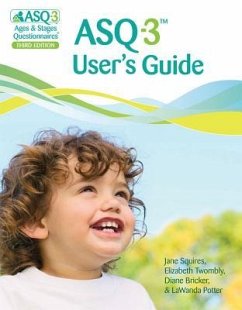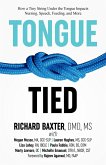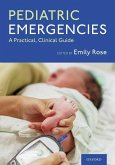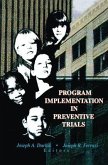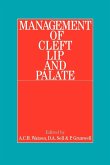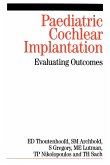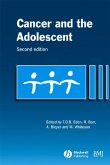Schade – dieser Artikel ist leider ausverkauft. Sobald wir wissen, ob und wann der Artikel wieder verfügbar ist, informieren wir Sie an dieser Stelle.
- Broschiertes Buch
- Merkliste
- Auf die Merkliste
- Bewerten Bewerten
- Teilen
- Produkt teilen
- Produkterinnerung
- Produkterinnerung
ASQ-3 is the most accurate, cost-effective, and parent-friendly way to identify children from birth to 5 years with developmental delays. Essential to using ASQ-3, this guide provides step-by-step guidance on administering and scoring the questionnaires, setting up a screening system, and using ASQ-3 across a wide range of settings.
Andere Kunden interessierten sich auch für
![Tongue-Tied Tongue-Tied]() Dmd BaxterTongue-Tied13,99 €
Dmd BaxterTongue-Tied13,99 €![Pediatric Emergencies Pediatric Emergencies]() Pediatric Emergencies176,99 €
Pediatric Emergencies176,99 €![Program Implementation in Preventive Trials Program Implementation in Preventive Trials]() Joseph A DurlakProgram Implementation in Preventive Trials72,99 €
Joseph A DurlakProgram Implementation in Preventive Trials72,99 €![Management of Cleft Lip and Palate Management of Cleft Lip and Palate]() A. WatsonManagement of Cleft Lip and Palate141,99 €
A. WatsonManagement of Cleft Lip and Palate141,99 €![Paediatric Cochlear Implantation Paediatric Cochlear Implantation]() Ernst ThoutenhoofdPaediatric Cochlear Implantation100,99 €
Ernst ThoutenhoofdPaediatric Cochlear Implantation100,99 €![Cancer and the Adolescent Cancer and the Adolescent]() Eden Tim / Bleyer Archie / Barr RonnieCancer and the Adolescent103,99 €
Eden Tim / Bleyer Archie / Barr RonnieCancer and the Adolescent103,99 €
ASQ-3 is the most accurate, cost-effective, and parent-friendly way to identify children from birth to 5 years with developmental delays. Essential to using ASQ-3, this guide provides step-by-step guidance on administering and scoring the questionnaires, setting up a screening system, and using ASQ-3 across a wide range of settings.
Produktdetails
- Produktdetails
- Verlag: Brookes Publishing Company
- 3rd edition
- Seitenzahl: 256
- Erscheinungstermin: 1. Juni 2009
- Englisch
- Abmessung: 279mm x 217mm x 20mm
- Gewicht: 730g
- ISBN-13: 9781598570045
- ISBN-10: 1598570048
- Artikelnr.: 26121176
- Herstellerkennzeichnung
- Libri GmbH
- Europaallee 1
- 36244 Bad Hersfeld
- gpsr@libri.de
- Verlag: Brookes Publishing Company
- 3rd edition
- Seitenzahl: 256
- Erscheinungstermin: 1. Juni 2009
- Englisch
- Abmessung: 279mm x 217mm x 20mm
- Gewicht: 730g
- ISBN-13: 9781598570045
- ISBN-10: 1598570048
- Artikelnr.: 26121176
- Herstellerkennzeichnung
- Libri GmbH
- Europaallee 1
- 36244 Bad Hersfeld
- gpsr@libri.de
Dr. Squires is Professor of Special Education, focusing on the field of early intervention/early childhood special education. She oversees research and outreach projects in the areas of developmental screening, implementation of screening systems, early identification of developmental delays, and the involvement of parents in monitoring their young childrenâ (TM)s development. She is lead author of the Ages & Stages Questionnaires(R), Third Edition ( ASQ(R)-3; with D. Bricker; Paul H. Brookes Publishing Co., 2009), Ages & Stages Questionnaires(R) Social-Emotional, Second Edition (ASQ(R) SE-2; with D. Bricker and E. Twombly; Paul H. Brookes Publishing Co., 2015), and the Social-Emotional Assessment/Evaluation Measure (SEAM(TM)), Research Edition (with D. Bricker, M. Waddell, K. Funk, J. Clifford, & R. Hoselton; Paul H. Brookes Publishing Co., 2014). She has authored or coauthored more than 90 books, chapters, assessments, videotapes, and articles on developmental screening and early childhood disabilities. In 2013, she coauthored the book Developmental Screening in Your Community: An Integrated Approach for Connecting Children with Services (Paul H. Brookes Publishing Co., 2013). Dr. Squires currently teaches doctoral-level courses in early intervention/special education and conducts research on comprehensive early identification and referral systems for preschool children. Liz Twombly, M.S., has been a member of the Ages & Stages Questionnaire (ASQ) team for the past 30 years. In this role, she takes part in the ongoing research and development for ASQ-3, a parent-completed developmental screening tool, as well as ASQ: SE-2, a parent-completed social-emotional screening tool. Ms. Twombly is the lead author on the ASQ-3 and ASQ: SE-2 Learning Activities books, which provide follow-up to screening guidance to parents for how to support their child's development within the home. She provides training and technical assistance on the use of these screening tools in diverse health, educational, and social service settings across the U.S. and internationally. Other areas of interest and research include systems of care for substance-exposed newborns, infant mental health, and family engagement in screening and early intervention services. Dr. Bricker served as Director of the Early Intervention Program at the Center on Human Development, University of Oregon, from 1978 to 2004. She was a professor of special education, focusing on the fields of early intervention and social-communication. Her professional interests have addressed three major areas: early intervention service delivery approaches, curricula-based assessment and evaluation, and developmental-behavioral screening. Dr. Bricker's work in early intervention approaches has been summarized in two volumes: An Activity-Based Approach to Early Intervention, Fourth Edition (with J. Johnson & N. Rahn; Paul H. Brookes Publishing Co., 2015) and An Activity-Based Approach to Developing Young Childrenâ (TM)s Social Emotional Competence (with J. Squires; Paul H. Brookes Publishing Co., 2007). Her work in curricula-based assessment/evaluation has focused on the development of the Assessment, Evaluation, and Programming System for Infants and Children, Second Edition (AEPS(R); with B. Capt, K. Pretti- Frontczak, J. Johnson, K. Slentz, E. Straka, & M Waddell; Paul H. Brookes Publishing Co., 2004). This measure and curricula provides intervention personnel with a system for the comprehensive assessment of young children with results that link directly to curricular content and subsequent evaluation of child progress. Dr. Bricker has been a primary author of the Ages & Stages Questionnaires(R) (ASQ(R); with J. Squires; Paul H. Brookes Publishing Co., 1995, 1999, 2009) and directed research activities on the ASQ system starting in 1980. Developmental Screening in Your Community: An Integrated Approach for Connecting Children with Services (Bricker, Macy, Squires, & Marks; Paul H. Brookes Publishing Co., 2013) offers a comprehensive system for creating and operating community-wide developmental-behavioral screening programs for young children. Dr. Bricker's distinctions include the Division of Early Childhood, Council for Exceptional Children Service to the Field Award, December 1992, and the Peabody College Distinguished Alumna Award, May 1995. LaWanda Potter, M.S., is a Program Coordinator at the University of Oregon's Early Childhood Coordination and Referral, Evaluation and Services Program (EC CARES) in Eugene, Oregon. Ms. Potter is an administrator for EC CARES, an early intervention/early childhood special education program in Oregon. She received her master's degree in child development and family studies from Purdue University. Ms. Potter has been involved with several research studies on ASQ(R), including questionnaire revisions, data analysis, and documentation. She has also provided outreach training on ASQ across the United States.

